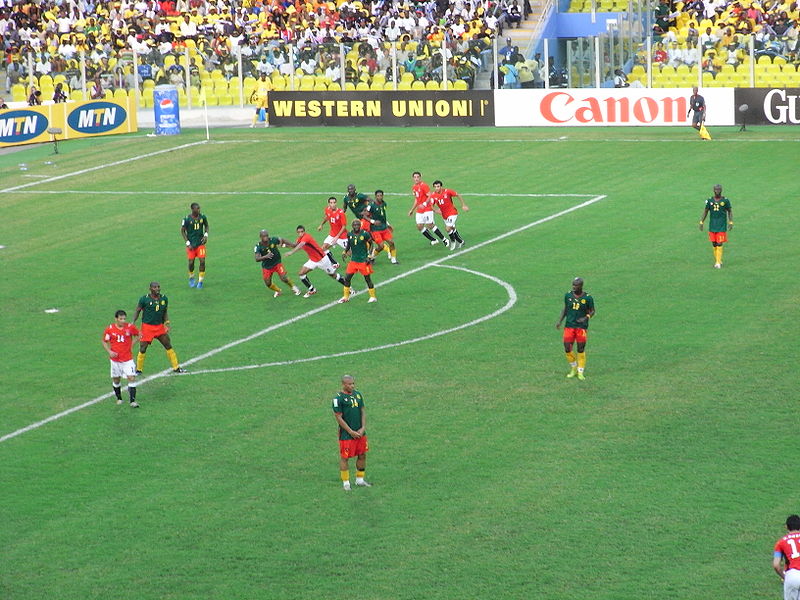
Africa cup final
Egypt-Cameroon, February 10th 2008
Egypt may have gained some new prestige and a few more tourists from hosting the 2019 Africa Cup of Nations but, it failed to acquire any new trophies.
The host of the 2019 Africa Cup of Nations watched from the sidelines as Algeria defeated Senegal in the title match earlier this month. However, for Egypt, the political ramifications of the tournament are almost as important as its outcome.
In early July, Egypt lost 1-0 to South Africa in the first knockout round of the tournament, something that has occurred only once before. That first loss came in 1974 when the Pharaohs lost at home to Zaire. Coming in the aftermath of the October War of 1973, or Ramadan War, that tournament offered above all a return to normalcy for Egypt. Besides in 1974 Zaire played in the World Cup, and it’s then-dictator Mobutu Sese Seko placed a big emphasis on sport. Recall Kinshasa would host the “Rumble in the Jungle”, a heavyweight title fight between Muhammad Ali and George Foreman later that year.
Since that loss in 1974 Egypt has emerged as the winningest team in the tournament’s history, winning a record five times. This time armed with Mohammed Saleh, arguably the greatest player ever and playing at home, Egypt was expected to defeat South Africa. Instead, it is Algeria and Senegal who contested the final.
The tournament was used by Egypt to boost tourism and to position Egypt as one of Africa’s leading countries. Egyptian President Abdel Fatah el-Sissi took over the chairmanship of the African Union earlier this year. He replaces Paul Kagame who spent much of his chairmanship involved in the negotiations for the landmark African Continental Free Trade Area. Where Sissi will lead the African Union remains unclear but, combating terrorism is a key concern.
“Terrorism remains a cancer that affects African nations and steals the dreams of our people and we must identify and combat those who fund terrorism activities on the continent,” he said in a speech shortly after becoming the first Egyptian to chair the African Union. A more pressing security concern the fate of the Nile river as it relates to Ethiopia’s ongoing Renaissance Dam project, which also is motivating Egypt’s re-engagement with African affairs.
The tournament also appears to have brought a large number of international fans in particular from Algeria and Tunisia according to match attendance figures. A flight to the Red Sea resort of Sharm El-Sheikh from Cairo during the tournament found it full of Algerian and Tunisia football fans taking a break between matches. Elsewhere two Congolese visitors happily shopping in Alexandria’s San Steffano Mall said they were having an excellent time in Egypt and despite the language barriers were happy to pose with fans for photos. If the tournament had been held in Cameroon as originally planned Francophone teams and their fans may have had an easier time.
However, Cameroon was stripped of its hosting rights in November 2018 due to lack of progress on needed infrastructure for the tournament and security concerns.
Security aside this was the first edition of the Africa Cup of Nations to feature 24 teams which presented a large logistical challenge. Indeed only a handful of countries in Africa have the number of stadiums necessary for such a large tournament where simultaneous matches are necessary for the early rounds as Algerian football fans know all too well.
In 1982, Algeria nearly qualified for the knockout stages of the 1982 World Cup after defeating Chile and Germany. However, instead, Germany and Austria played a match that Algerian fans believe was carefully choreographed to ensure both of those teams would advance rather than Algeria. The “scandal of Gijon” resulted in FIFA proscribing simultaneous play of group state matches.
The expanded tournament of course meant more sponsorship opportunities. In a further bow to the needs of sponsors, Egypt allowed the display and broadcast of advertisements for betting companies – gambling is forbidden under Shariah law. International fans aside, it is unclear how many Egyptians saw them – at least in person. High ticket prices and a digital fan ID system helped to keep much of the Egyptian populace away from the matches.
Some Egyptians grumbled that this was intentional. Egypt’s government views organized football with suspicion. Indeed, groups of extreme football fans known as “ultras” played an outsized role in Egypt’s street protests in 2011. In 2013, the Black Bloc, an organized group of street fighters consciously modelled themselves off such ultras. Last year Egypt’s military rulers succeeded in getting the fans of Al Ahly and Zamalek (Egypt’s two most powerful clubs) to disband their ultras sections.
Not so long-ago Egypt-Algeria was considered the Africa Cup of Nations hottest rivalry with Egypt withdrawing its ambassador from Algeria after riots in Algeria and Sudan tied to World Cup qualification matches.
Algerian media has reported that several Algerian fans were deported from Egypt for attempting to display political slogans. In Algeria, ultras were some of the first to speak out publicly against Bouteflika during their chants at Algerian league football matches.
In at least one incident in Egypt, Algerian fans chanted the name of Mohamed Aboutrika. Once considered the star of Egyptian football his criticisms of the Sissi regime landed him designation as a terrorist and he was forced to flee Egypt for Qatar.
Still many Egyptians and the Egyptian media have thrown their weight behind Algeria, Morocco, and Tunisia — the other Arab League countries appearing the in the tournament.
“Of course we are all rooting for Algeria,” says Aziz Mohammed in a barbershop in Alexandria as patrons and barbers alike stare at the Algeria-Nigeria match playing out on TV screens above him, “ They are the Arab team so we will root for them… 2009 was a long time ago.”
- Iran Lies About Resistance Leader’s Alleged Trip To Israel
- ConIFA Football Tournament Held In Nagorno-Karabakh

